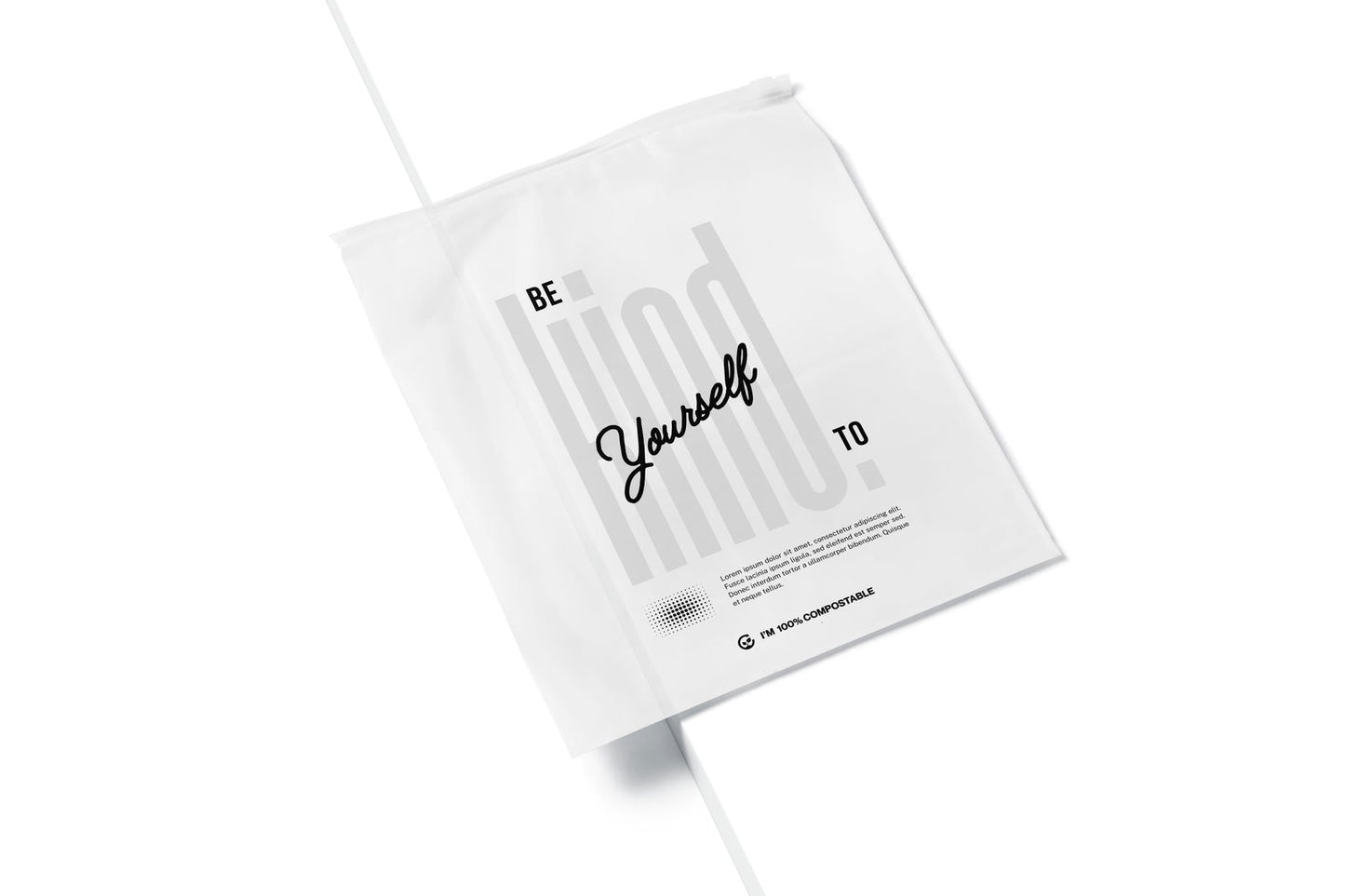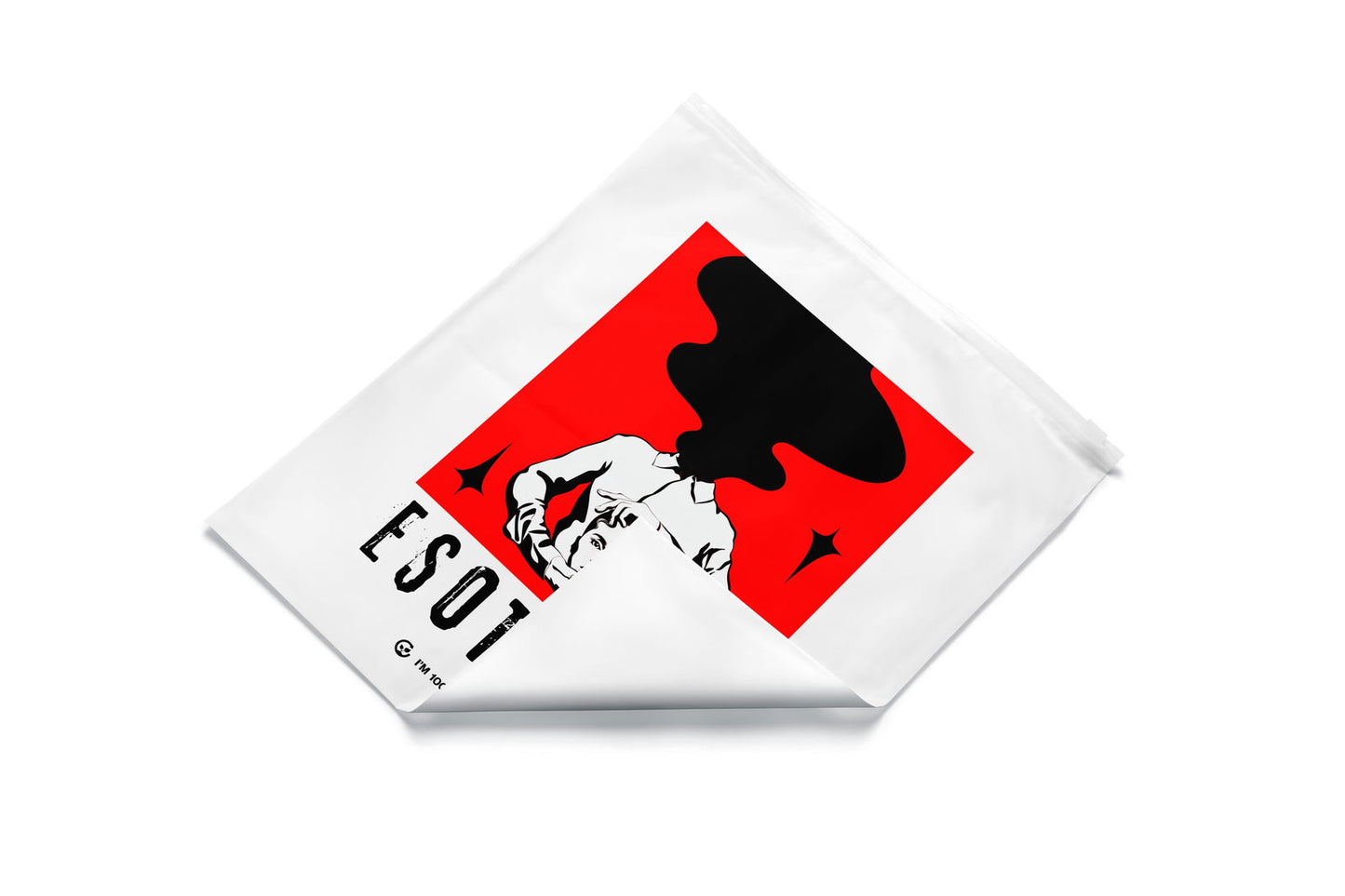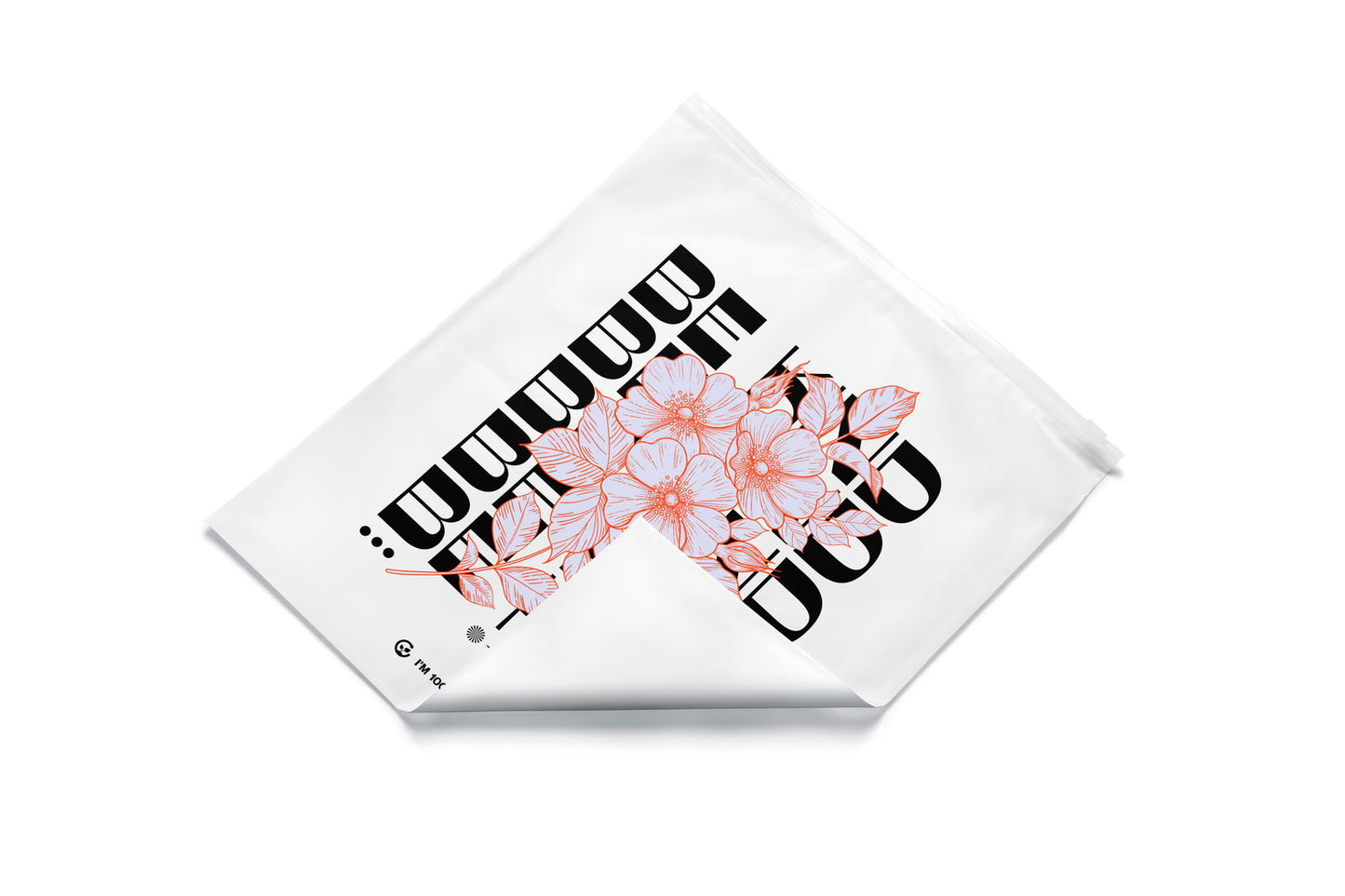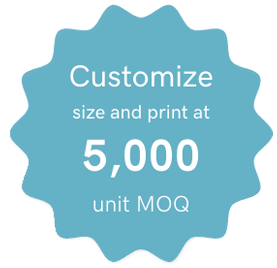Try out a sample with our sample pack!
Custom options
Size: 1.18x1.97" to 31.5x39.37"
Print: two-sided
Thickness: 20-200μm
Vent holes
Closure: zipper-pull tab, zip lock, non-toxic reclosable adhesive
Quantity: 5k+ (depending on size)
Daily capacity: 35,000
Industry Application
Apparel, travel, healthcare
- Sustainable Materials: Crafted from a blend of cornstarch, PLA, and PBAT, our compostable clothing bags are eco-friendly and certified to fully biodegrade in just 180 days in a home composting bin and 90 days in industrial compost facilities. Yes, this does include the zipper!
- Responsible Sourcing: We oversee our entire supply chain, ensuring that all cornstarch used is responsibly sourced from discarded corn unfit for human consumption.
- Customizable Packaging: Begin at just 5,000 units for tailored eco-friendly packaging, showcase your product, brand and promote sustainability messaging.
- Durability and Performance: Our compostable clothing bags outperform conventional plastic bags, offering tear resistance and waterproof properties even under heavy weight.
- Shelf Life: Store in a cool, dry place with a shelf life of up to 1 year to maintain integrity and compostability.
- Custom Samples Available: Experience the quality of our compostable clothing bags firsthand with our sample kit, or inquire below for information on the custom sample process.
🌳 Free Carbon-Neutral Shipping on All Orders🌳



We Work With
Materials

EcoPackables D42 Film
Made from our D42 film, which consists of organic materials like Cassava Root and Cornstarch, along with fully compostable polymers that are both bio-based and fossil-based. Thickness ranges from 30-110μm. Colors can be customized.
Collapsible content
Is compostable packaging good for the environment?
Our perspective on compostable packaging evolves with ongoing research and new findings. One thing remains clear: we can't continue to depend solely on paper and LDPE (plastic) for future packaging solutions. Innovation in materials is essential, which is why we currently offer compostable options. While our present offerings may not be "perfect," the absence of investment from companies like ours would hinder progress toward the ideal compostable material. There are challenges, such as incomplete composting infrastructure and the lack of a strong alternative to fossil-based PBAT, a common binder in many bags. However, without exploring these options and supporting R&D in material science, legislative changes and the development of new materials will stall. For this reason, we see compostable technologies as a crucial investment in the future.
Do your bags contain microplastics?
No, they don’t. Many “biodegradable” plastics are often oxo-degradable plastics. These are produced from conventional non-biodegradable plastics, enhanced with additives that simulate biodegradation to promote material fragmentation. These plastics disintegrate into tiny fragments that persist in the environment. Our bags are completely different — there is no polyethylene structure in the bags. Instead, when they break down, they dissolve into water, organic biomass, and C02.
What are the certifications?
The bags are certified by all three industry certifiers; Vincotte, BPI and Dincerto,
meeting American, European, International and Australian standards – including
certifications for your domestic home compost. To gain these certifications, the
product must break down within 90 days in commercial compost and 180 days in
home compost conditions, including wormfarm compost. After degradation, they
must leave no harmful residues behind. In fact, the only residue left behind is a soil
enhancer which is returned to the earth as plant food.
What is the shelf life?
This is very important. To ensure maximum longevity, EcoPackables mailers should
be stored in a dark, dry place. If stored correctly, they will be strong enough to send
parcels around the world for at least 9-12 months, if not, their strength will be
compromised. This is why we recommend ordering in 6-month intervals.














